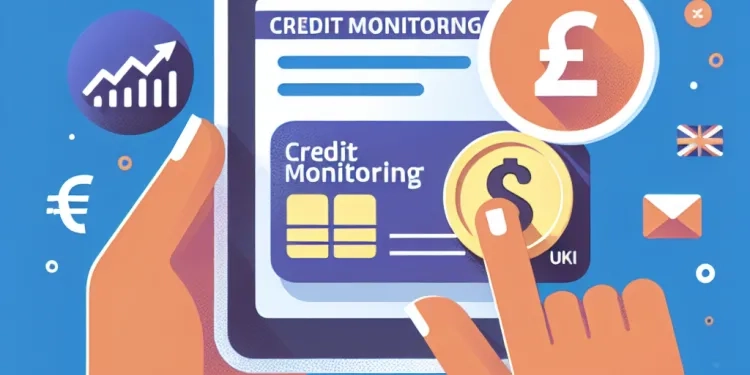
Find Help
More Items From Ergsy search
-
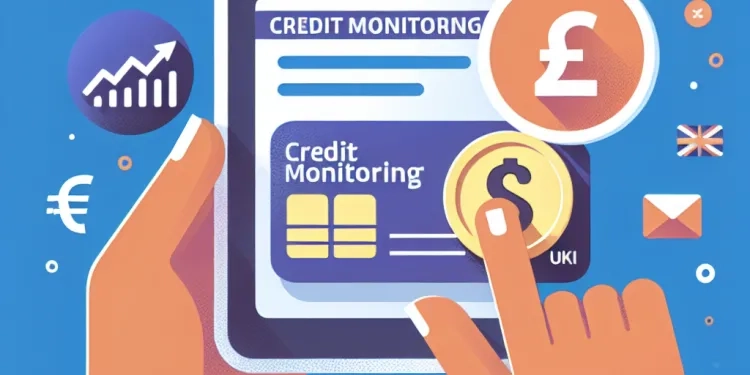
What is credit monitoring?
Relevance: 100%
-
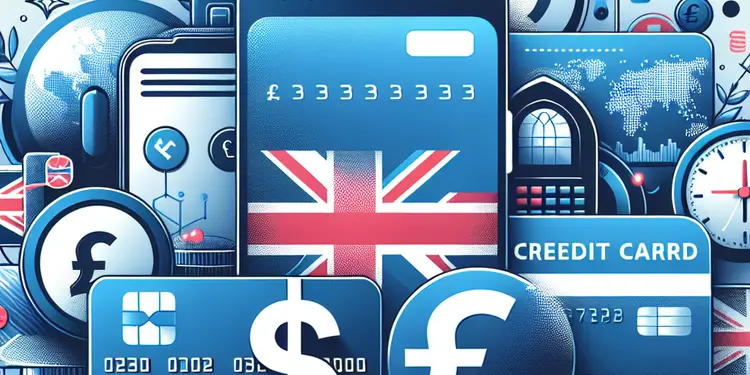
What is credit card fraud?
Relevance: 52%
-
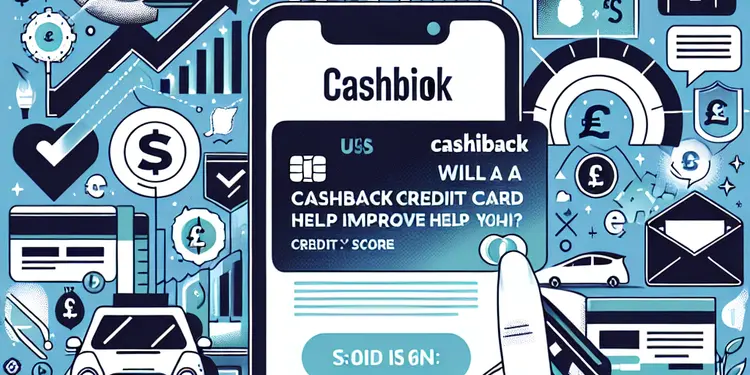
Will a cashback credit card help improve my credit score?
Relevance: 51%
-
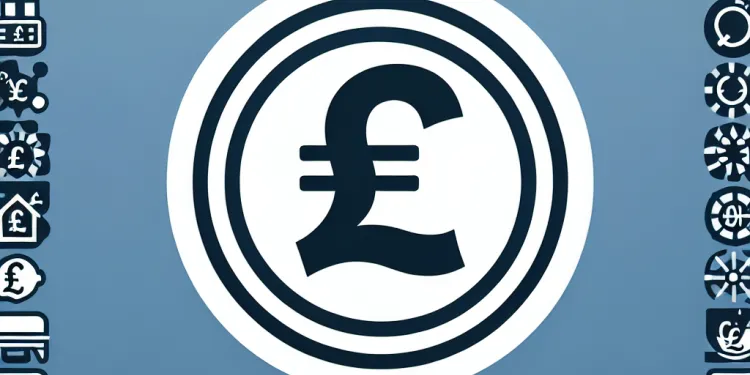
What is Universal Credit in the UK?
Relevance: 49%
-

Applying For Universal Credit
Relevance: 49%
-
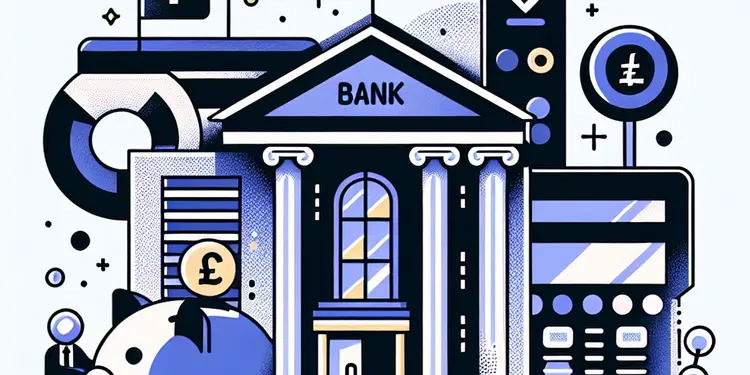
Will switching banks affect my credit score?
Relevance: 48%
-

What happens if I have a credit on my account?
Relevance: 47%
-
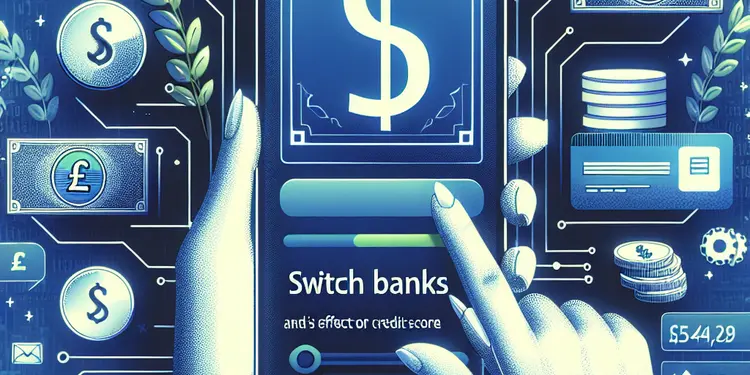
Will switching banks affect my credit score?
Relevance: 47%
-

Are there changes expected for tax credits in April 2026?
Relevance: 47%
-

Credit Union tour of Wales
Relevance: 47%
-
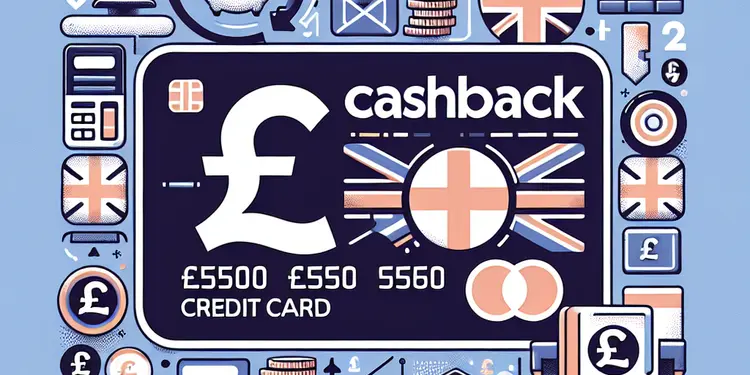
What is a cashback credit card?
Relevance: 46%
-

How is Universal Credit paid?
Relevance: 46%
-

Is a cashback credit card right for me?
Relevance: 46%
-
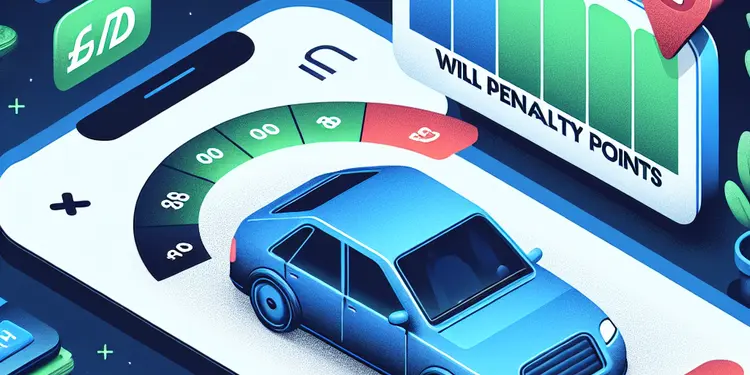
Will penalty points affect my credit score?
Relevance: 45%
-

Will transferring a balance affect my credit score?
Relevance: 45%
-
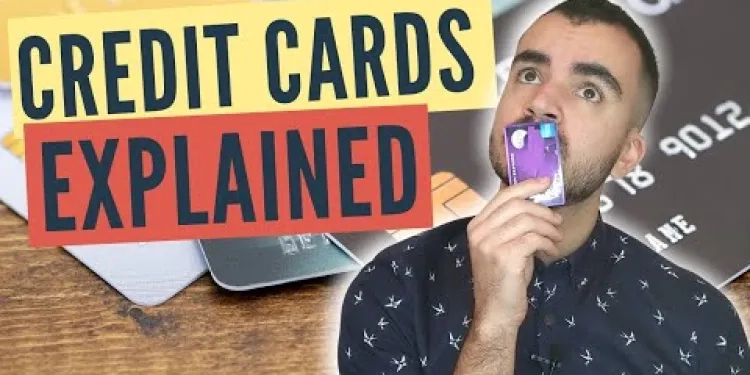
Credit Cards for Beginners Explained UK | Do's and Don't | Type of Cards
Relevance: 45%
-
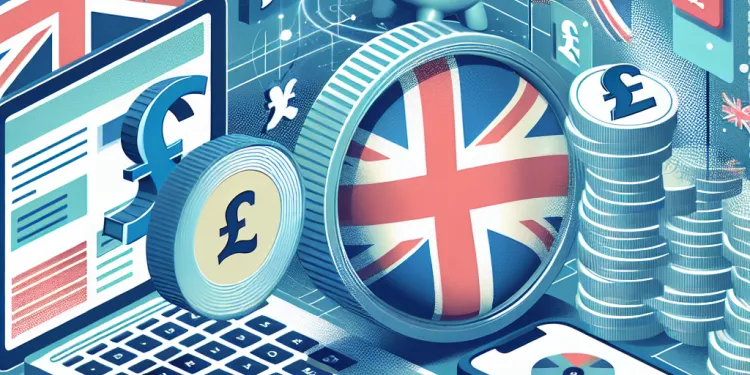
Can eviction affect my credit score?
Relevance: 44%
-

Can a Time to Pay arrangement affect my credit score?
Relevance: 44%
-

How can I apply for Universal Credit?
Relevance: 44%
-
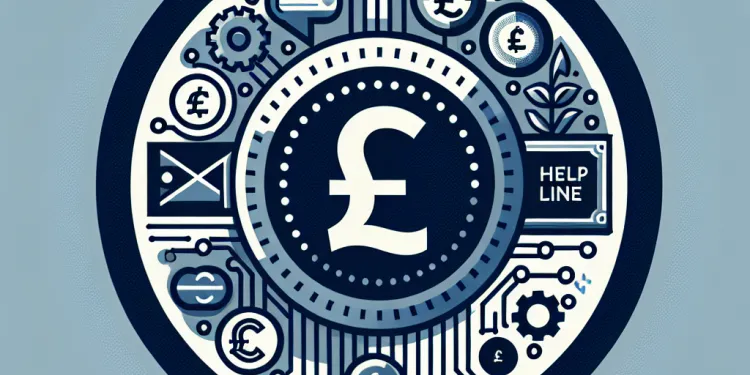
What is the Universal Credit helpline number?
Relevance: 44%
-

How is the Universal Credit amount calculated?
Relevance: 44%
-
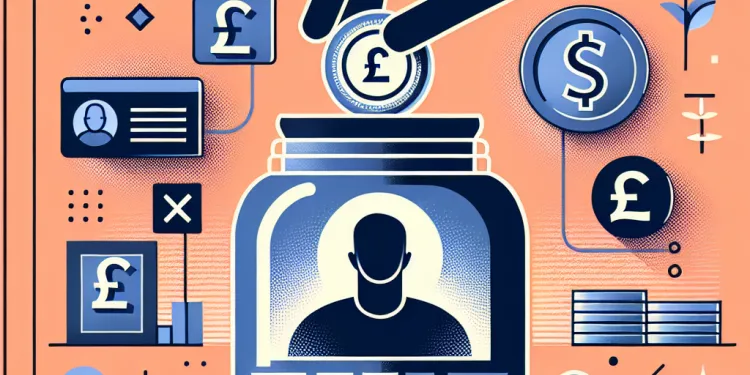
Can I apply for Universal Credit if I am self-employed?
Relevance: 44%
-
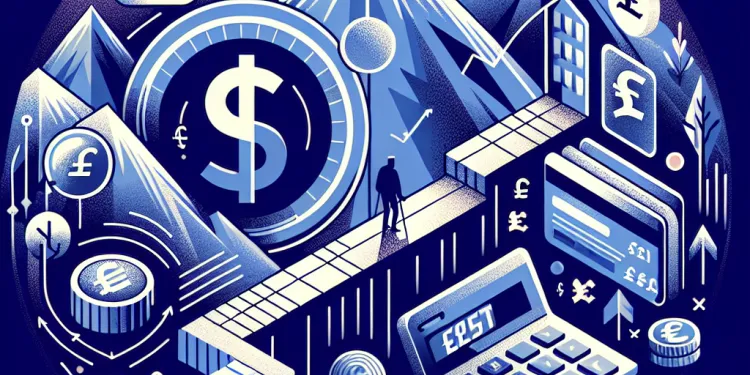
What is a balance transfer credit limit?
Relevance: 44%
-

Can Universal Credit be stopped or sanctioned?
Relevance: 44%
-
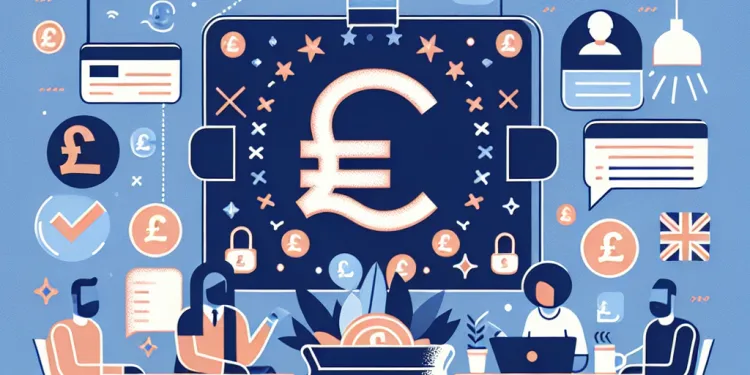
Who can apply for Universal Credit?
Relevance: 44%
-
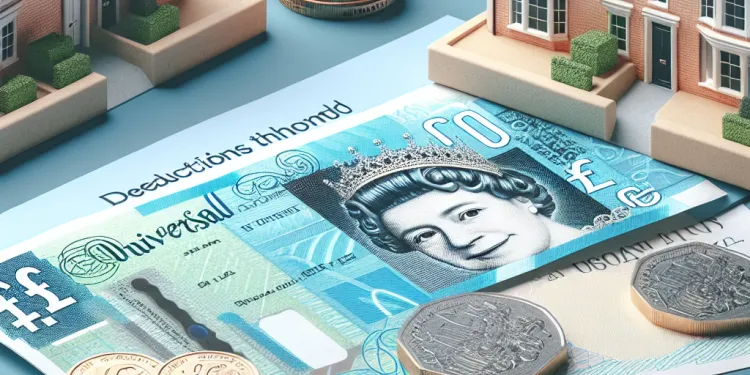
Are there any deductions from Universal Credit?
Relevance: 44%
-

How is the quality of live-in care monitored?
Relevance: 44%
-
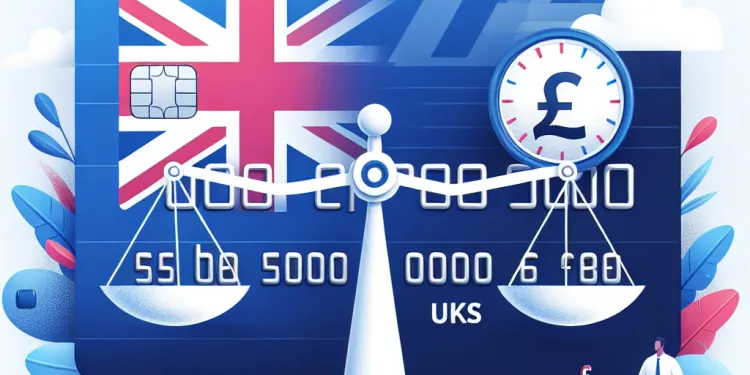
What is a Balance Transfer Credit Card?
Relevance: 43%
-

How does the UK monitor measles outbreaks?
Relevance: 43%
-
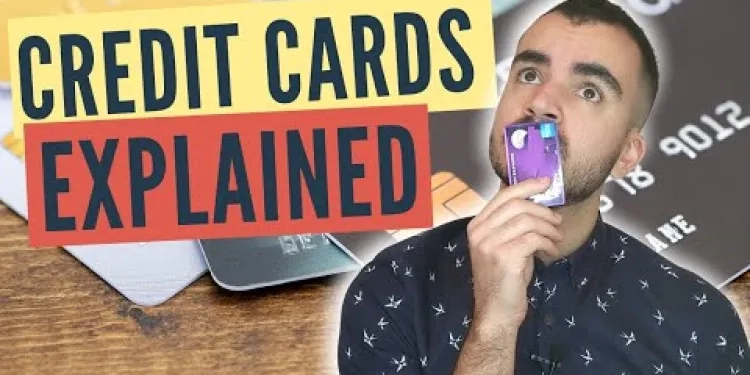
Credit Cards for Beginners Explained UK | Do's and Don't | Type of Cards
Relevance: 43%
-

What work-related requirements exist for Universal Credit claimants?
Relevance: 42%
-

Does Universal Credit cover childcare costs?
Relevance: 42%
-
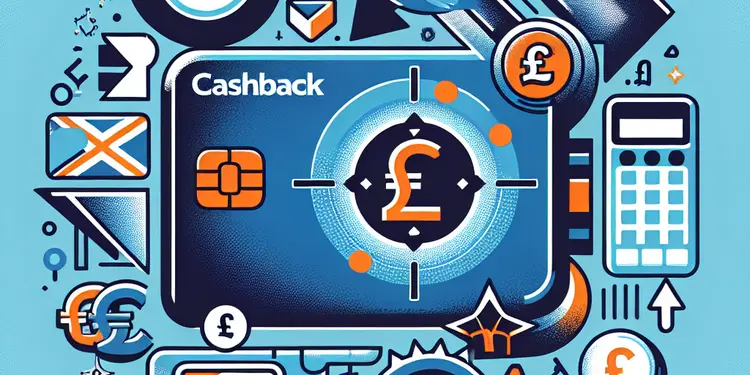
How does a cashback credit card work?
Relevance: 42%
-

Can AI help in monitoring lung cancer progression?
Relevance: 42%
-
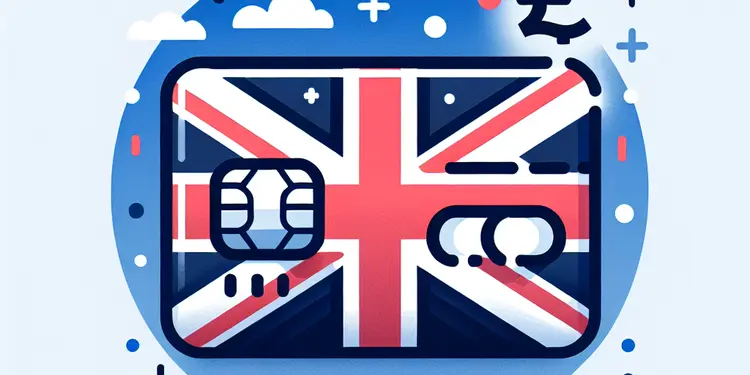
Are there any drawbacks to using a cashback credit card?
Relevance: 42%
-
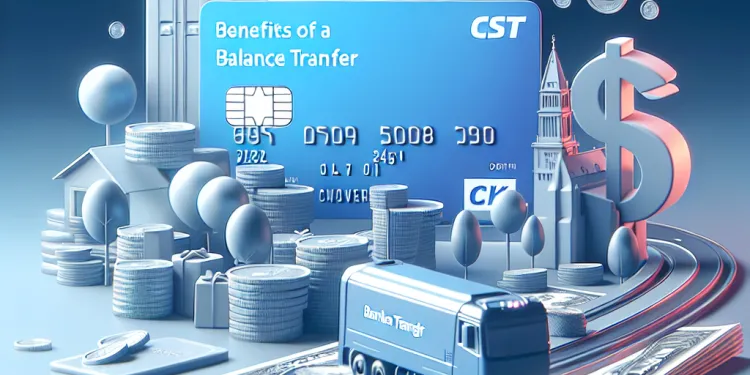
What are the benefits of a balance transfer credit card?
Relevance: 42%
-

Are there credits available for the basic State Pension if I can't work?
Relevance: 41%
-

How do health officials monitor H3N2 activity?
Relevance: 41%
-
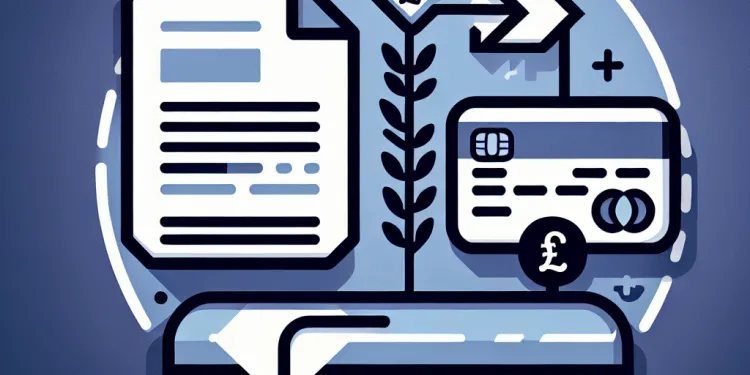
Can I transfer a balance from a loan to a credit card?
Relevance: 41%
-
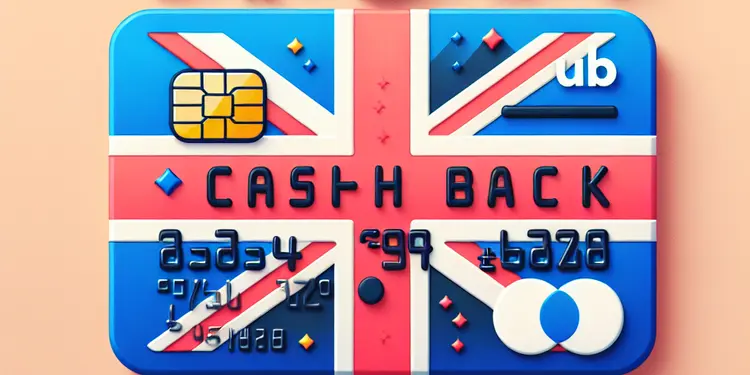
Can I transfer cashback rewards to another credit card?
Relevance: 41%
What is Credit Monitoring?
Credit monitoring is a service that helps individuals keep track of their credit reports and credit scores. It involves regular checks of an individual's credit files for any unusual activities or changes, alerting the person of such updates. This capability is essential in managing credit responsibly and protecting against identity theft. For those in the UK, where the financial system heavily relies on credit information, understanding how credit monitoring works can be particularly beneficial.
How Does Credit Monitoring Work?
Credit monitoring services in the UK, provided by agencies like Experian, Equifax, and TransUnion, work by periodically reviewing and tracking changes in a person's credit report. These services notify users of important changes, such as new accounts being opened in their name, changes to their credit limit, or sudden significant increases in debt. With these alerts, individuals can quickly determine if the changes are legitimate or potentially fraudulent.
Benefits of Credit Monitoring
One of the primary benefits of credit monitoring is the early detection of identity theft and fraud. By receiving alerts about unfamiliar activities, individuals can take swift action to address potential misuse of their personal information. Additionally, credit monitoring allows individuals to stay informed about their credit standing, helping them make better financial decisions, such as when to apply for a loan or mortgage.
Credit monitoring can also aid in improving one's credit score. By regularly reviewing reports, users can identify areas for improvement, such as late payments that need addressing or erroneous information that needs correcting. This proactive approach can enhance an individual's creditworthiness over time.
Limitations of Credit Monitoring
While credit monitoring is a useful tool, it is not foolproof. It does not prevent identity theft or fraud, but rather it informs individuals about changes that have already occurred. Furthermore, routine monitoring might not cover all types of identity theft, especially those beyond credit accounts, such as fraudulent tax returns or medical identity theft. Therefore, it is crucial to combine credit monitoring with other protective measures.
Choosing a Credit Monitoring Service
When selecting a credit monitoring service in the UK, individuals should consider factors like the frequency of updates, the comprehensiveness of tracking across different credit bureaus, and additional features such as credit score simulators or identity theft insurance. While many services charge a fee, some platforms offer free basic monitoring, which can be a suitable option for those seeking minimal oversight.
Conclusion
Credit monitoring is an invaluable service that helps individuals in the UK maintain oversight of their credit health. By promptly alerting users to changes in their credit report, it enables them to respond quickly to potential threats and manage their financial standing more effectively. However, since it is not a preventive tool, it should be part of a broader strategy for financial and personal data protection.
What is Credit Monitoring?
Credit monitoring is a service. It helps you check your credit report and credit score. It looks at your credit files often to see if anything unusual happens. When there are changes, it tells you. This helps you manage your credit well and protect against identity theft. In the UK, where credit information is very important, knowing how credit monitoring works can help a lot.
How Does Credit Monitoring Work?
Credit monitoring services in the UK are offered by companies like Experian, Equifax, and TransUnion. They look at your credit report regularly and tell you about any changes. They alert you if new accounts are opened in your name, if your credit limit changes, or if there is a big increase in debt. These alerts help you see if the changes are real or if there might be a problem.
Benefits of Credit Monitoring
The main benefit of credit monitoring is catching identity theft and fraud early. If you get alerts about unknown activities, you can act fast to fix any misuse of your personal information. It also lets you keep track of your credit standing. This helps you make smart financial choices, like when to apply for a loan.
Credit monitoring can help improve your credit score. By checking reports often, you can find things to improve, like late payments or mistakes that need fixing. This can make your credit better over time.
Limitations of Credit Monitoring
Credit monitoring is helpful but not perfect. It does not stop identity theft or fraud; it just tells you about changes. It might not catch all kinds of identity theft, like fake tax returns or medical identity theft. So, it's important to also use other safety measures.
Choosing a Credit Monitoring Service
When picking a credit monitoring service in the UK, think about how often they update, how well they track across different credit bureaus, and if they have extra features like credit score simulators or identity theft insurance. Some services cost money, but some offer free basic monitoring, which can be good if you want just a little help.
Conclusion
Credit monitoring is a valuable service that helps people in the UK keep an eye on their credit health. It alerts users quickly about changes in their credit report, so they can handle any problems and manage their finances better. But remember, it does not stop problems, so use it with other ways to protect your financial and personal information.
Frequently Asked Questions
What is credit monitoring?
Credit monitoring is a service that tracks changes in your credit report, helping you detect any potential fraud or inaccuracies.
How does credit monitoring work?
Credit monitoring services alert you whenever there are significant changes to your credit report, such as new accounts opened or large changes in credit utilization.
Why is credit monitoring important?
Credit monitoring is important because it helps you stay informed about your credit status and can quickly alert you to potential identity theft.
What changes trigger a credit monitoring alert?
Credit monitoring alerts can be triggered by new credit inquiries, changes in your account balances, new accounts, or public records being added to your credit report.
Can credit monitoring improve my credit score?
Credit monitoring itself does not improve your credit score, but it helps you stay informed so you can take actions that may positively impact your score.
Does credit monitoring affect my credit score?
No, simply using a credit monitoring service does not have any impact on your credit score.
Is credit monitoring worth the cost?
It depends on your personal situation. If you are concerned about identity theft or need to closely track your credit, it may be worth the investment.
What are some features of credit monitoring services?
Features often include credit report and score alerts, identity theft protection tools, and access to your credit report.
Can I monitor my credit on my own?
Yes, you can check your credit reports regularly and monitor for changes, but dedicated credit monitoring services can provide more comprehensive and timely alerts.
How often should I check my credit report?
It's recommended to check your credit report at least once a year, though more frequent monitoring can help detect issues sooner.
Are there free credit monitoring services available?
Yes, some companies offer free credit monitoring services, though they may have more limited features compared to paid options.
How do I choose a credit monitoring service?
When choosing a service, consider features, cost, user reviews, and whether they monitor one or all three credit bureaus.
What is identity theft protection in credit monitoring?
Identity theft protection includes tools and services designed to help detect and respond to unauthorized use of your personal information.
How can credit monitoring help prevent identity theft?
While it can't prevent identity theft, credit monitoring can quickly alert you to suspicious activity, allowing you to act promptly.
Do all credit monitoring services monitor all credit bureaus?
No, some services only monitor one or two bureaux, while others cover all three major credit bureaus (Equifax, Experian, TransUnion).
What information do you need to provide for credit monitoring?
Typically, you'll need to provide personal information like your name, Social Security number, and date of birth to set up a credit monitoring service.
Can businesses use credit monitoring?
Yes, businesses can use credit monitoring to track their business credit reports and scores, helping manage financial health and detect fraud.
What should I do if I receive a credit monitoring alert?
Review the alert details and verify whether the change was authorized. If not, contact the necessary authorities or institutions to start resolving any issues.
How do credit monitoring services notify users?
Notifications are usually sent via email, text message, or through an app, depending on the service settings and options provided.
What are the limitations of credit monitoring?
Limitations include not being able to prevent identity theft, reliance on credit bureaus for updates, and potential gaps in monitoring if not all bureaus are covered.
What is credit monitoring?
Credit monitoring checks your money details.
It tells you if someone tries to use your money without asking.
Credit monitoring helps keep your money safe.
Use apps or websites to watch your money.
Credit monitoring helps you watch your credit report. It can tell you if someone tries to steal your money or if there are mistakes.
How does credit monitoring work?
Credit monitoring watches your money records.
It helps keep track of things like loans and bills.
It's a good tool to make sure your money is safe.
It tells you if someone tries to use your money without asking.
You can use alerts to get messages about changes.
If something looks wrong, you can fix it quickly.
Credit monitoring services help you by sending alerts. They let you know when something big changes in your credit report. This could be if someone opens a new account in your name or if there is a big change in how much credit you are using.
Why is Credit Monitoring Important?
Credit monitoring is important because it helps you keep track of your money and how you use it. It shows you if someone tries to use your name to borrow money. This can stop bad things from happening to your money.
Here are some tips to help you with credit monitoring:
- Check your credit report often. You can use websites like AnnualCreditReport.com to do this.
- Ask someone you trust to help you understand your credit report.
- Use simple apps that show your money and spending clearly.
Credit monitoring is important. It helps you know what's happening with your credit. It can tell you quickly if someone is trying to steal your identity.
What makes a credit alert happen?
Credit monitoring alerts let you know when something changes with your credit. This can happen if someone checks your credit, if your account balances change, if you open a new account, or if new information is added to your credit report.
- Use simple and frequent reminders to check for alerts.
- Try using apps that help you track your credit easily.
- Ask a friend or family member for help if you have questions.
Can watching my credit report help my credit score get better?
People who watch their credit report can see changes.
Watching does not make your score go up.
But it can stop bad things from making your score go down.
Ask for help if you do not understand.
Watching your credit won't make your credit score go up. But it tells you what's happening with your credit, so you can do things to help make your score better.
Does credit watching change my credit score?
Credit watching means looking at your credit report to see if anything changes.
It does not change your credit score. It just helps you know what is happening.
If you want help to see your credit report, you can use special apps or ask for help from someone you trust.
No, using a credit watching service does not change your credit score.
Should you pay for watching your credit?
Paying for help to watch your credit can be good. Credit is like a school report card for your money. Watching it can keep you safe from problems.
Think about these helpful tips:
- Use free tools that show your credit score.
- Check your bank account often for any weird spending.
- Ask an adult you trust to help you understand credit better.
Decide what's best for you. Do you want more help watching your credit or can you do it yourself?
This choice depends on you. If you worry about people stealing your identity or need to watch your credit closely, it might be a good idea to spend the money.
What do credit check services do?
Credit check services help you watch your money and credit. Here are some things they do:
- They tell you if someone uses your name to borrow money.
- They show you your credit score. This is like a school report for your money.
- They warn you if something bad happens to your credit.
Helpful tools:
- Use colored stickers to remember important points.
- Ask a friend or family to explain tricky parts.
- Look at pictures to understand better.
Here are things you can get:
- Alerts about your credit score and report.
- Tools to help protect you from identity theft. This means stopping someone from pretending to be you.
- You can look at your credit report. This shows how you have used money before.
Can I check my credit by myself?
Yes, you can check your credit.
Here are some tips to help you:
- Ask for your free credit report online.
- Look for apps that help you check your credit.
- Read about ways to keep your credit safe.
These tools can make checking your credit easy.
Yes, you can look at your credit reports often to see if anything changes. But special services for checking credit can give you more complete updates and quicker alerts.
How often should I look at my credit report?
It's a good idea to look at your credit report often. Try to check it at least once a year. Checking helps you see if everything is correct.
Here are some tips to help you:
- Set a reminder on your calendar to check it every year.
- Ask someone you trust to help you look at it.
- Use online tools that make checking your credit easy.
It's a good idea to look at your credit report one time each year. Checking it more often can help you find problems early.
Can I get credit monitoring for free?
Yes, some companies give free credit checks. They might not have as many features as the paid ones.
How do I pick a credit watching service?
Here are some tips:
- Look for a service that helps protect your money.
- Pick one that tells you if someone is using your money without asking.
- Choose a service that is easy for you to use.
Ask a grown-up if you need help. There are tools to help, like:
- Talking to a friend or family member.
- Using simple online guides with pictures.
When you pick a service, think about these things: what it can do, how much it costs, what people say about it, and if it checks one or all three credit agencies.
What is identity theft protection in credit monitoring?
Identity theft protection helps keep your personal information safe. It stops people from stealing your information, like your name or bank details.
Credit monitoring checks your credit report regularly. If something looks wrong or unusual, it tells you. This helps stop people from using your information for bad things.
To learn more, you can use helpful tools. For example, there are websites and apps that explain things in simple words. You can also ask someone you trust to help you understand.
Identity theft protection helps keep your personal information safe. It has special tools and services to find out if someone is using your information without asking you first. It can also help you fix the problem if someone tries to steal your identity.
How can watching your credit help stop identity theft?
Watching your credit can help keep your personal information safe. It tells you if someone is trying to use your details without asking.
Here's how it works:
- Alerts: You get a message if there are changes to your credit. This helps you see if anything strange happens.
- Checking: You can look at your credit report to make sure everything is right.
- Quick Action: If you see something wrong, you can fix it fast to stay safe.
Help tools:
- Apps: Use apps that tell you about changes to your credit.
- Support: Ask someone you trust for help with checking your credit.
Credit monitoring helps you know if something odd is happening with your money. It can't stop bad people from trying to steal your information, but it can tell you quickly if something is wrong. This way, you can fix it fast.
Do all credit check services look at all credit bureaus?
No, not all of them do. Some services only check one or two credit bureaus.
Tips to Understand:
- Credit monitoring helps you check your credit score.
- There are three main credit bureaus: Experian, Equifax, and TransUnion.
- Some services might only look at one or two of these bureaus.
Helpful Tools:
- Ask someone you trust to help explain.
- Use online videos about credit to learn more.
No, some services only check one or two places. Other services check all three main places: Equifax, Experian, TransUnion.
What do you need to give for credit watching?
Here is what you might need to share:
- Your name
- Your address
- Your date of birth
- Your Social Security Number (SSN) or other ID
Support tools:
- Ask a helper if you have questions.
- Use a checklist to make sure you have all items.
You will usually need to give some personal details. This might be your name, your Social Security number, and your date of birth. This helps set up a credit monitoring service.
Can companies keep track of their credit?
Yes, companies can watch their credit. It is like checking your score in a game.
To do this, companies can use special tools. These tools are like a magnifying glass that helps them see their credit score better.
Using these tools, companies can see if their credit is good or if they need to make it better. It helps them make smart choices with money.
If you need help, ask someone to explain or find a video that shows how credit works.
Yes, businesses can use tools to watch their money and credit. This helps them stay healthy with money and see if anyone is trying to steal from them.
What to Do If You Get an Alert About Your Credit?
If you get a message about your credit, don’t worry. Here are some simple steps:
1. Read the Alert: Take your time to understand the message. It might say something has changed with your credit.
2. Ask for Help: If you find it confusing, it’s okay to ask someone you trust for help. You can also use a tool like a dictionary.
3. Check Your Credit Report: You can look at your credit report online. It shows your credit history and any changes. Make sure everything looks right.
4. Contact the Company: If you see a mistake, call the company that sent the alert. They can help you fix it.
5. Use Support Tools: Consider using apps that explain credit reports or alerts in simple words.
Remember, it’s okay to take your time and ask for help if you need it.
Look at the alert details carefully. Check if the change was allowed. If it wasn't, talk to the right people or places to fix any problems.
How do credit monitoring services tell people?
Credit monitoring services help you check your money and credit.
They tell you when something changes.
They can send you messages or emails.
These alerts help you know what is happening with your money.
Using pictures or symbols can make it easier to understand these messages.
Notifications are messages you get. You can get them in different ways. You might get them by email, text message, or in an app on your phone. It depends on how you set it up.
What can't credit monitoring do?
Things that can go wrong:
- It can't stop someone from stealing your identity.
- You have to wait for credit bureaus to tell you what's new.
- If not all credit bureaus are checked, you might miss something.
Helpful tips:
- Use strong passwords and don't share them.
- Check your credit report regularly.
- Use alerts to get updates about your credit.
Useful Links
This website offers general information and is not a substitute for professional advice.
Always seek guidance from qualified professionals.
If you have any medical concerns or need urgent help, contact a healthcare professional or emergency services immediately.
Some of this content was generated with AI assistance. We’ve done our best to keep it accurate, helpful, and human-friendly.
- Ergsy carfully checks the information in the videos we provide here.
- Videos shown by Youtube after a video has completed, have NOT been reviewed by ERGSY.
- To view, click the arrow in centre of video.
- Most of the videos you find here will have subtitles and/or closed captions available.
- You may need to turn these on, and choose your preferred language.
- Go to the video you'd like to watch.
- If closed captions (CC) are available, settings will be visible on the bottom right of the video player.
- To turn on Captions, click settings .
- To turn off Captions, click settings again.
More Items From Ergsy search
-

What is credit monitoring?
Relevance: 100%
-

What is credit card fraud?
Relevance: 52%
-

Will a cashback credit card help improve my credit score?
Relevance: 51%
-

What is Universal Credit in the UK?
Relevance: 49%
-

Applying For Universal Credit
Relevance: 49%
-

Will switching banks affect my credit score?
Relevance: 48%
-

What happens if I have a credit on my account?
Relevance: 47%
-

Will switching banks affect my credit score?
Relevance: 47%
-

Are there changes expected for tax credits in April 2026?
Relevance: 47%
-

Credit Union tour of Wales
Relevance: 47%
-

What is a cashback credit card?
Relevance: 46%
-

How is Universal Credit paid?
Relevance: 46%
-

Is a cashback credit card right for me?
Relevance: 46%
-

Will penalty points affect my credit score?
Relevance: 45%
-

Will transferring a balance affect my credit score?
Relevance: 45%
-

Credit Cards for Beginners Explained UK | Do's and Don't | Type of Cards
Relevance: 45%
-

Can eviction affect my credit score?
Relevance: 44%
-

Can a Time to Pay arrangement affect my credit score?
Relevance: 44%
-

How can I apply for Universal Credit?
Relevance: 44%
-

What is the Universal Credit helpline number?
Relevance: 44%
-

How is the Universal Credit amount calculated?
Relevance: 44%
-

Can I apply for Universal Credit if I am self-employed?
Relevance: 44%
-

What is a balance transfer credit limit?
Relevance: 44%
-

Can Universal Credit be stopped or sanctioned?
Relevance: 44%
-

Who can apply for Universal Credit?
Relevance: 44%
-

Are there any deductions from Universal Credit?
Relevance: 44%
-

How is the quality of live-in care monitored?
Relevance: 44%
-

What is a Balance Transfer Credit Card?
Relevance: 43%
-

How does the UK monitor measles outbreaks?
Relevance: 43%
-

Credit Cards for Beginners Explained UK | Do's and Don't | Type of Cards
Relevance: 43%
-

What work-related requirements exist for Universal Credit claimants?
Relevance: 42%
-

Does Universal Credit cover childcare costs?
Relevance: 42%
-

How does a cashback credit card work?
Relevance: 42%
-

Can AI help in monitoring lung cancer progression?
Relevance: 42%
-

Are there any drawbacks to using a cashback credit card?
Relevance: 42%
-

What are the benefits of a balance transfer credit card?
Relevance: 42%
-

Are there credits available for the basic State Pension if I can't work?
Relevance: 41%
-

How do health officials monitor H3N2 activity?
Relevance: 41%
-

Can I transfer a balance from a loan to a credit card?
Relevance: 41%
-

Can I transfer cashback rewards to another credit card?
Relevance: 41%


